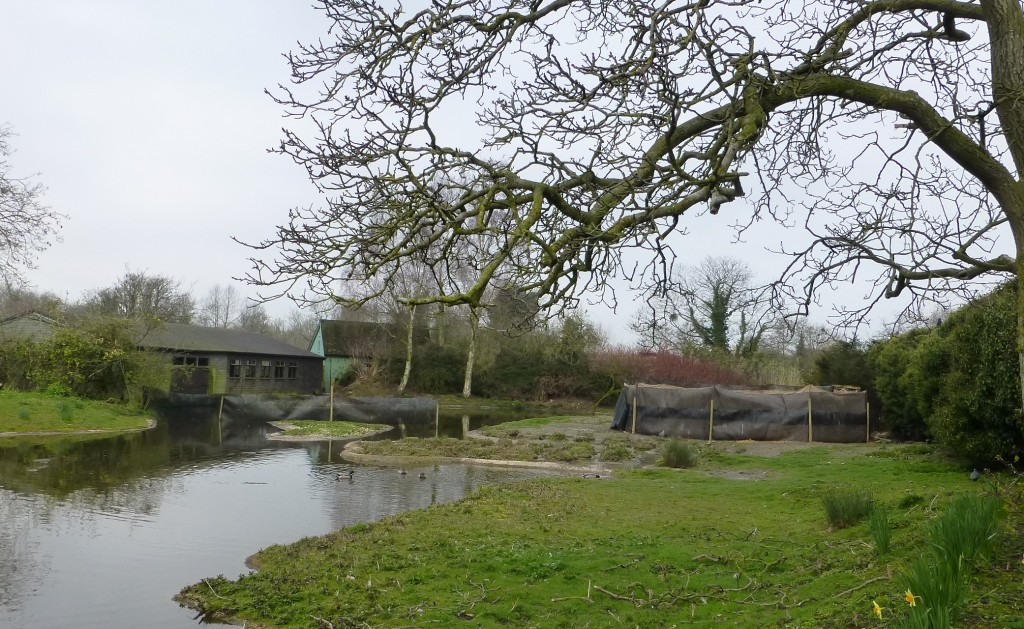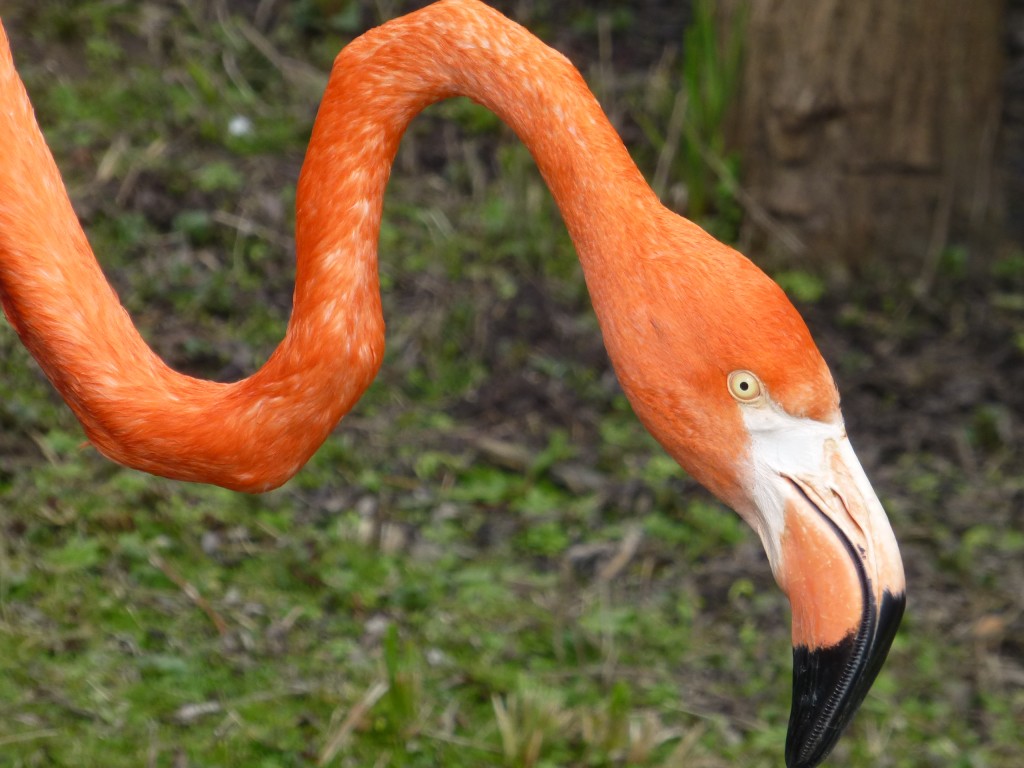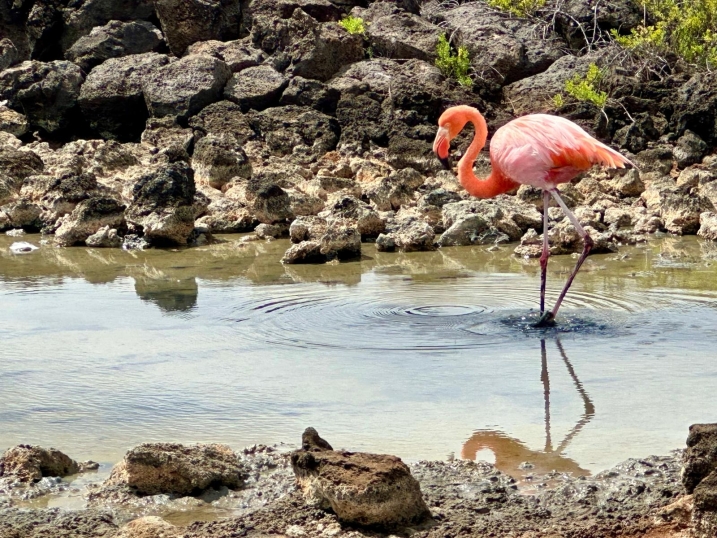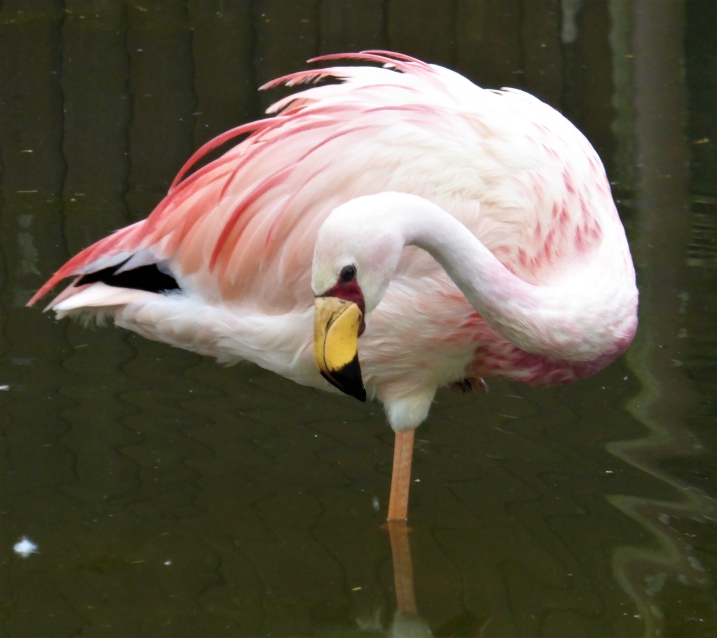Caribbean round-up.
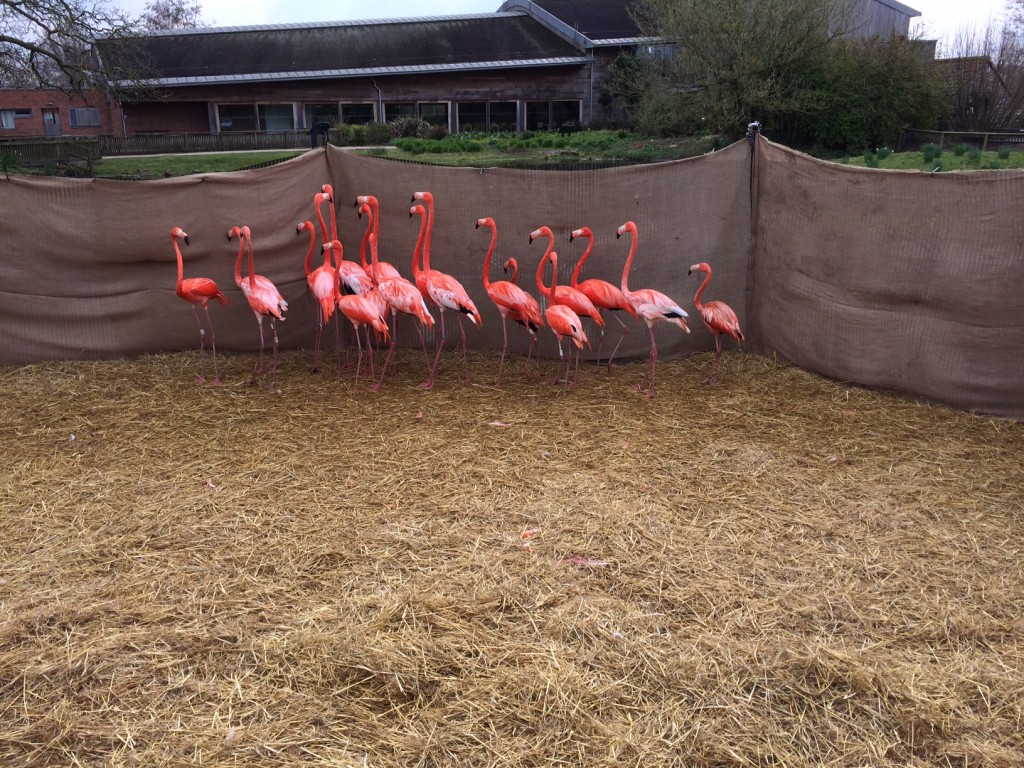
It's been a while since the Caribbean flock at WWT Slimbridge were all caught and ringed. Flamingos are not really what you'd term "touchy-feely" animals and they generally like to be left alone, to their own devices. As such, unless is absolutely essential, the avics at WWT manage the flocks in a hands-off as much as possible style. The best for the bird's welfare. You can see the set-up needed to catch a flock of this size in the photo below.
On some occasions, however, it is necessary to wade in (pardon the pun) and directly handle all of the birds. And such an occasion was today. The flamingos needed to be ringed, microchipped and health-checked. As is required by those in government that enjoy paperwork, records need to be maintained and bird's individual identities and origins need to be logged. A little like a census for flamingos if you were. With good breeding success over the past few years, and many new arrivals into the flock, the time had come for these Caribbean flamingos to participate in ensuring that their own paperwork was up-to-date.
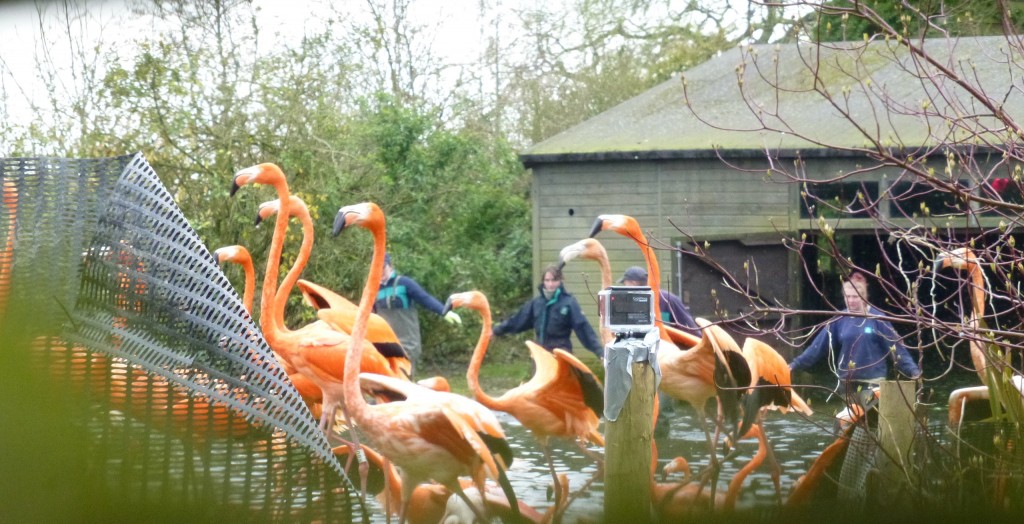
The catch started in the morning at around 10am and was all over by midday. Not bad going for a flock of this size. The weather even played its part too; lovely and sunny, with not even a hint of rain. Mark, Phil and Duane, experienced hands in the world of flamingo rounding-up ensured that all the birds were safely delivered into their padded, straw-lined corral and they then distributed the birds to a willing team of other WWT staff, plus volunteers and students, to go down a "production line" of checking if plastic leg rings were still in good order, checking to see if a microchip was needed and finally a health check on feet and body condition. All helping to keep the birds in tip-top condition.
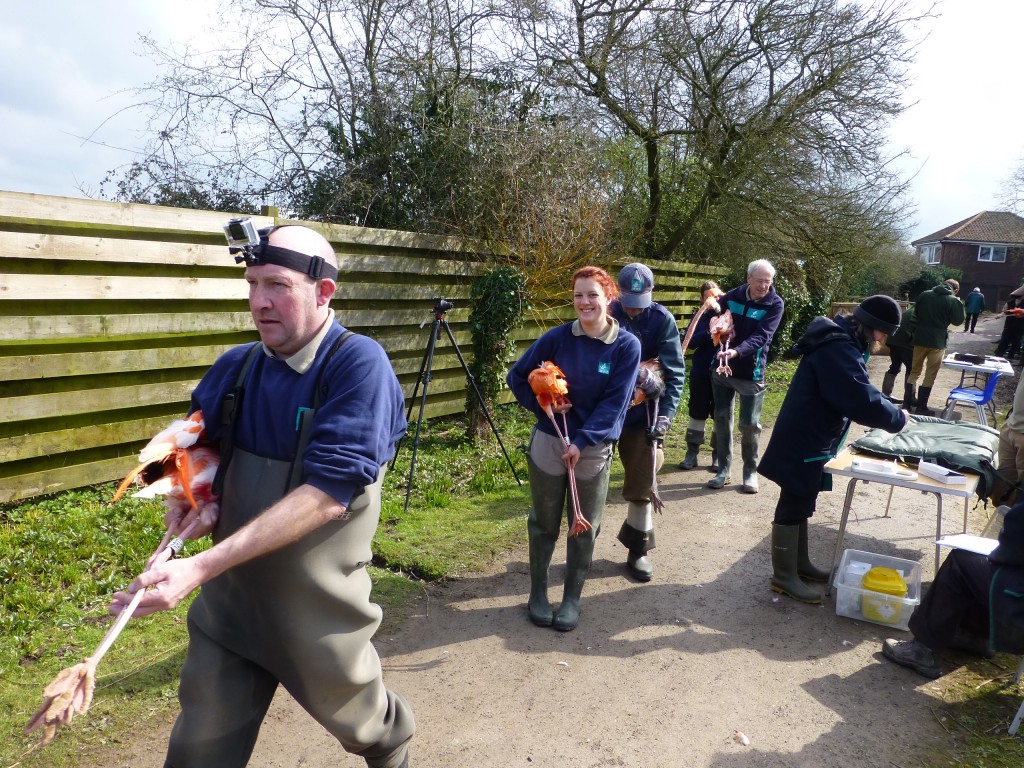
A whole WWT affair this was too. Ruth, Jono and Michelle from Wildlife Health; Julia scribing away (better known as a Bewick's swan expert but swapping white birds for pink ones today); an army of Duckery staff; folks from the Species Monitoring Unit to help with putting on rings; and grounds and horticulture staff to help with handling. I even roped two of my own students in (character building I like to think!). After each bird had been processed (a horrible term but nothing bad I assure you) down the line of ringing, microchips and health checks, they were carried back round the flamingo house were Phoebe from the Duckery was waiting to release each bird back into its familiar surroundings, to be reunited with its friends.
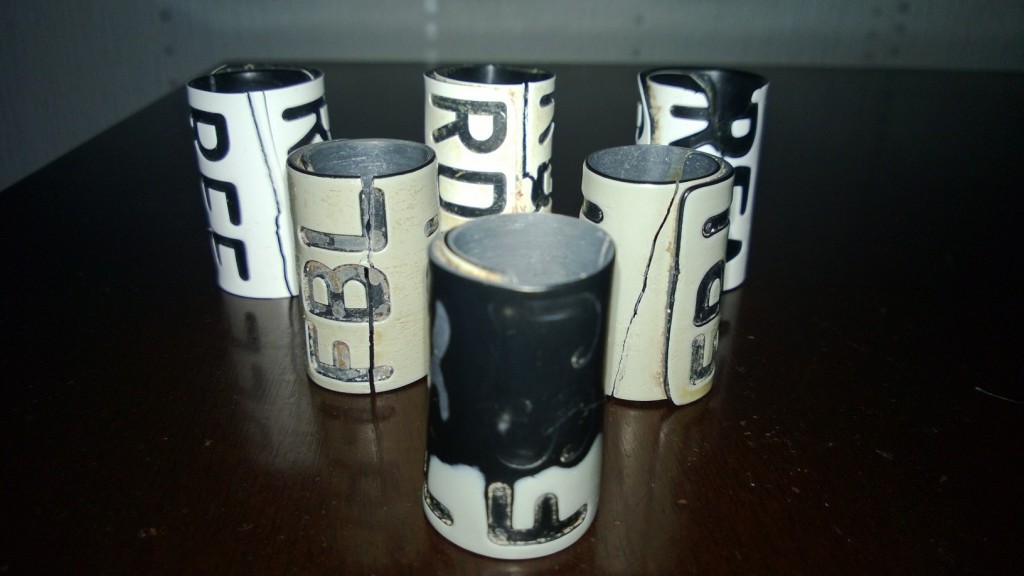
Now that this entire flock wears a plastic (Darvic) leg ring, it will be easier for me to get a complete picture of the individual interactions between each bird. So thanks to all of the WWT aviculture staff involved for organising this pretty large undertaking. And thanks to the flamingos themselves who, for the most part, were patient, calm and very well-behaved!
